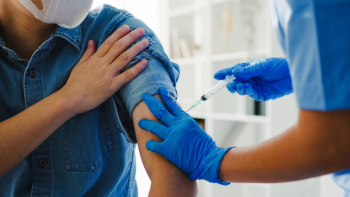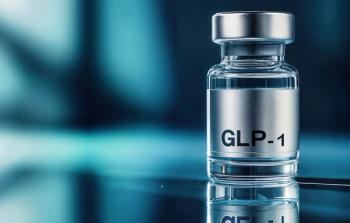
- Pharmaceutical Executive: October 2023
- Volume 43
- Issue 10
Securing the Safety Net in Drug Access and Support
A look at the intersection of rigorous compliance and ethical behavior: independent, charitable patient assistance foundations.
According to a recent Kaiser Family Foundation poll, 43% of US adults report in the past year that they or a family member in their household has put off or postponed needed healthcare due to cost. And that same poll reported that 47% of US adults say that it is very or somewhat difficult to afford their healthcare costs.
Fortunately, independent, charitable patient assistance foundations have long been recognized by the US government for their role in providing a critical safety net for Medicare beneficiaries and commercially insured patients with life-threatening, chronic, and rare diseases. In fact, these foundations are often the only available support people on Medicare with limited income can turn to for help, due to the Anti-Kickback Statute. As chief compliance and privacy officer with the PAN Foundation, I recognize the important role we play in supporting patients in need, while also adhering to the laws, regulations, and government guidance we are subject to.
WHY DO THESE FOUNDATIONS EXIST?
In 2003, Congress created the Medicare Part D program to cover outpatient prescription drugs, requiring patients to pay out-of-pocket copays that can easily run thousands of dollars per year.
While pharmaceutical companies can, and do, directly assist commercially insured patients with their copays through their own programs, they are unable to provide direct support to patients on Medicare Part D and other federally funded insurance programs due to the Anti-Kickback Statute. This statute is designed to protect patients and eliminate abuse and healthcare fraud from federal healthcare programs.
To fill the gap in the safety net for federally insured patients who may need help affording their drug copays, the US Department of Health and Human Services Office of Inspector General (OIG) issued clear guidance to charitable foundations. These OIG special advisory bulletins and advisory opinions outline how foundations should operate to accept charitable donations from pharma companies in a manner that does not violate federal laws and regulations and helps patients access their necessary treatments.
Grants from charitable patient assistance foundations are often the only available support for people on Medicare with limited incomes, as they are facing high out-of-pocket costs for their prescribed drugs Rising out-of-pocket costs for these medicines impact economically vulnerable patients and can often lead patients to delay or go without their needed treatments.
When evaluating charitable patient assistance foundations, the intersections between compliance and operational excellence should be front of mind for both the foundations themselves as well as their donors, including pharmaceutical companies.
WHAT REGULATIONS MUST THEY FOLLOW?
Charitable patient assistance foundations such as the PAN Foundation are independent, philanthropic organizations that are heavily regulated. There are multiple laws that all these entities—as well as pharma—must adhere to on an ongoing basis. These laws, regulations, and guidelines include but are not limited to the federal Anti-Kickback Statute, the federal Beneficiary Inducement Provision, the Internal Revenue Service’s code for tax exempt status, and advisory bulletins and advisory opinions issued by the OIG.
The federal Anti-Kickback Statute prohibits pharma companies from providing direct copay assistance to Medicare beneficiaries or others receiving government-funded insurance. More specifically, the OIG advisory opinions outline how drug manufacturers can donate to independent copay assistance foundations without violating the Anti-Kickback Statute. OIG Advisory opinions also outline how patient assistance foundations may operate.
For example, copay assistance foundations cannot maintain any disease fund that provides copay assistance for only one drug, or only the drugs made or marketed by one manufacturer or its affiliates. Independent, charitable assistance foundations clearly define for corporate donors—whether they are prospective or current donors—what we can and cannot communicate with them about our funds, patient population, and operations.
The federal Beneficiary Inducement Provision prohibits any individual or entity from offering or providing any type of payment to Medicare or Medicaid beneficiaries if doing so will influence the patient’s decision to use a particular healthcare provider, facility, or drug. And the Internal Revenue Code tax exemption status for charitable patient assistance foundations requires them to be organized and limits how they can influence legislation or participate in campaign activities.
HOW ARE DISEASE FUNDS CREATED?
Independent, charitable assistance foundations identify, design, and establish disease funds based on patient need, with full independence from donors, and have specific safeguards in place to ensure even unintentional influence cannot happen. Donor influence in disease fund creation can compromise foundation independence and can be the basis for an Anti-Kickback Statute violation—for both the foundation and donor company.
At the PAN Foundation, we provide donors with a documented policy for the types of communication we will not permit as it relates to the identification of a disease fund. Our funds are researched and reviewed by multiple clinical experts to document the impact that the disease fund will have on a patient community. If foundations receive input from a pharma company donor regarding the design of new or existing disease funds, they must not accept or pursue their proposals and advise the donor of this rule.
Independent, charitable assistance foundations should create and manage formularies in consultation with medical experts and maintain comprehensive standard operating procedures and policies that detail these processes. Importantly, foundations must cover all approved treatments for a diagnosis and cannot limit assistance to high-cost or specialty drugs. PAN’s formularies contain all prescription medications, including generic or bioequivalent drugs that are FDA-approved, listed in official compendia, and published in evidence-based or clinical guidelines.
In today’s landscape of charitable assistance, and in accordance with OIG informal guidance, foundations should ask donors for the same amount, or the total estimated patient need for a given time frame, when submitting funding requests for a disease fund.
This safeguard prevents manufacturers from donating in a manner that could be construed as an effort to target only the patients with the disease utilizing the manufacturer’s products and sets an objective, standard policy. The estimated total patient demand for disease funds, and the methodology used to analyze demand, should be shared proactively with donors. The information provided by the foundation cannot allow a donor to correlate its donations with use by patients of its products. In addition, working with foundations that ask for a minimum donation amount should be avoided. Every single donation—no matter the size—helps patients access critical medical treatment.
Once a fund is created, foundations must determine valid enrollment based on reasonable, objective, and verifiable eligibility criteria while processing applications. Tapping subject matter experts is a good way to determine eligibility requirements—and publishing all eligibility requirements and disease fund information on foundation websites.
WHAT COMMUNICATIONS TAKE PLACE?
There are several compliance considerations for foundations to weigh when communicating with current and prospective donors. To provide additional clarity, below are examples of what information can and cannot be shared. Foundations are allowed to share:
- Reports that contain certain information in the aggregate, including but not limited to number of applications approved; net funds allocated; total copayment paid out.
- Information regarding the total amount allocated to a disease fund and projections regarding the total estimated amount needed for each fund to maintain fund operations.
- Information on existing or prospective disease funds.
- General information about a foundation’s overall operations, including initiatives with providers and pharmacies, advocacy initiatives, key partnerships, and events and webinars.
Foundations cannot provide donors with:
- Information about any individual patient.
- Information that would enable a donor to correlate the amount or frequency of its donations with the number of patients that use its products or services, or with the amount or frequency of the use of its products.
- The use of or fund support of a specific product or service.
- Any wait/notification lists or information derived from such.
- Information regarding donations made to the foundation by other individuals or entities.
HOW SHOULD FOUNDATIONS BE EVALUATED?
Pharma companies should conduct their due diligence before deciding to work with a charitable patient assistance foundation. The key areas to evaluate include disease funds, formularies, eligibility and enrollment, donation practices, reporting, financials, data security and privacy, and compliance leadership programs. The following is a starting, non-exhaustive list of questions to ask:
- Does the foundation have an established and independent body of experts to set disease fund policy?
- Does it have an independent and standardized process for identifying disease funds that best serve patients’ needs?
- Does it consult with subject matter experts to understand and project patient need for its disease funds?
- What clinical standards does it use to define its funds?
- How does it define and set eligibility criteria for its funds?
- How does the foundation’s enrollment process work?
- Does it utilize counsel to review new funds for compliance?
- Does it have a documented policy for the types of communication it will not accept from manufacturers as it relates to the identification or delineation of a disease fund?
While this is a landscape filled with compliance considerations, by providing transparency around the processes of creating funds and determining eligibility, pharma companies will gain a greater understanding of why the need for independence is critical and how to compliantly engage with these foundations.
Articles in this issue
over 2 years ago
A Blueprint for Balanceover 2 years ago
Biopharma Stock Check: Market Review and Outlookover 2 years ago
Obesity Drugs in the Payer Market: What to Expectover 2 years ago
Boosting Clinical Trials and Patient Access with Payer Insightsover 2 years ago
Are We Close to a Peak in Interest Rates?over 2 years ago
The Harms of ‘Helicopter Research’ in the Life Sciencesover 2 years ago
The Rising Importance of Patient Advocacy Innovations in Asiaover 2 years ago
A Fond Farewellover 2 years ago
Pharmaceutical Executive, October 2023 Issue (PDF)Newsletter
Lead with insight with the Pharmaceutical Executive newsletter, featuring strategic analysis, leadership trends, and market intelligence for biopharma decision-makers.




